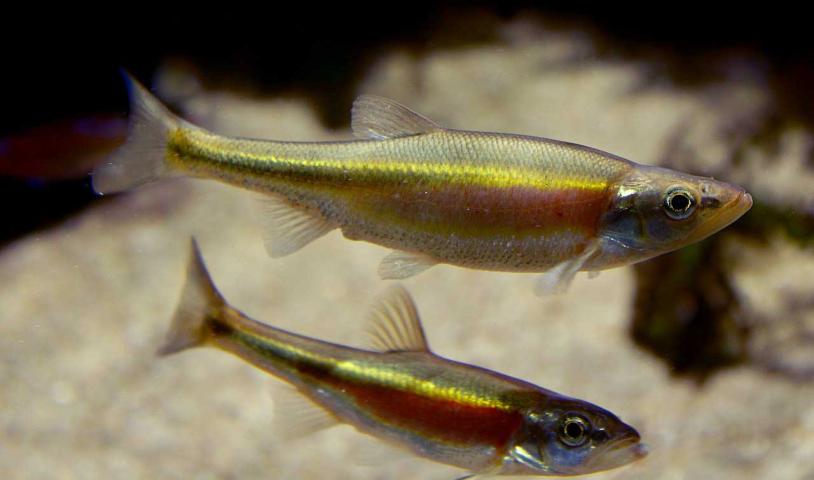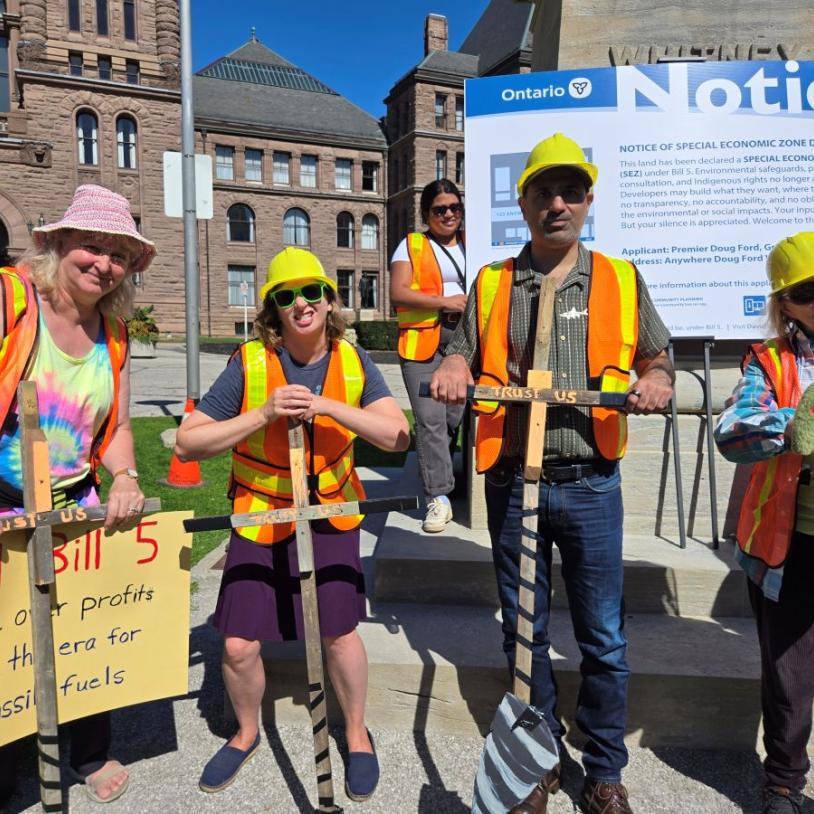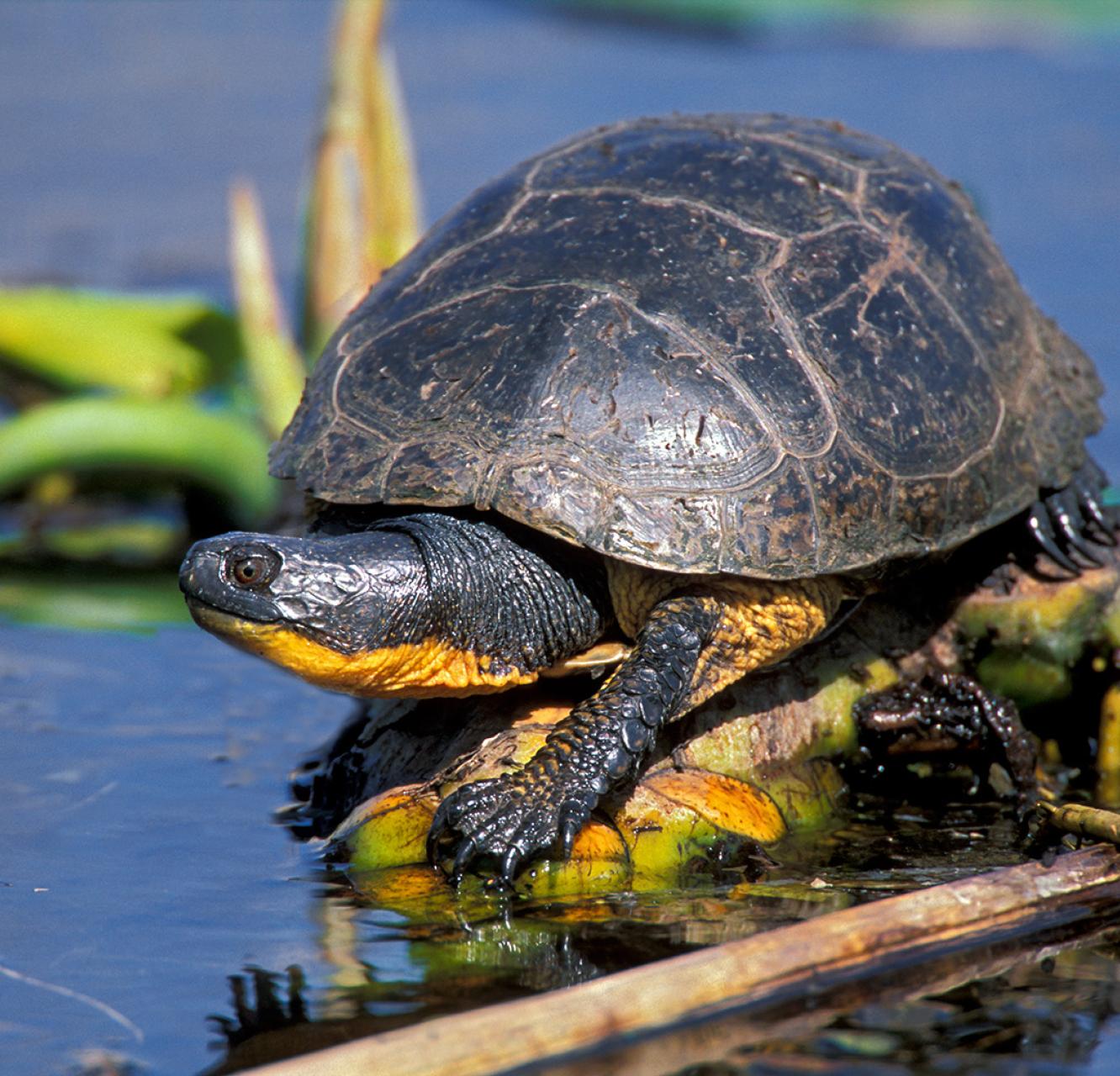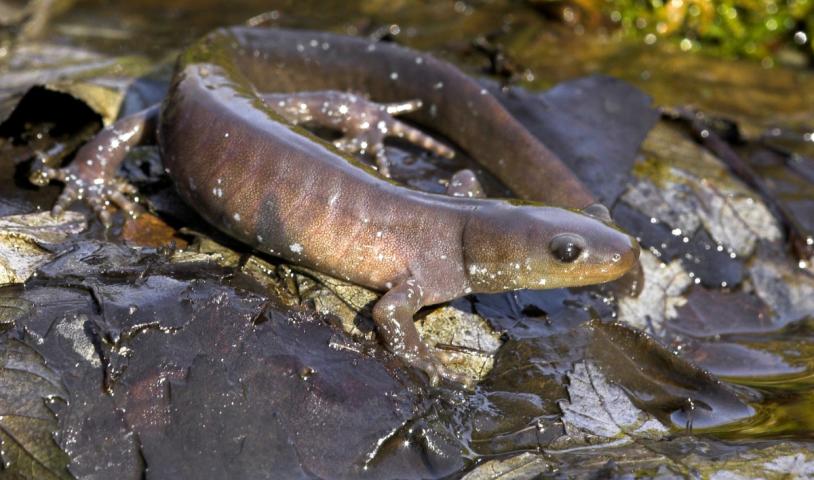Ontario government proposes to further gut dndangered species rules for developers
Thursday, February 22, 2024
Toronto | Traditional territories of the Mississaugas of the Credit, the Anishinaabeg, the Haudenosaunee, and the Wendat – This week, 68 organizations across Ontario expressed their strong opposition to a proposal from Ontario’s Ministry of Environment, Conservation and Parks (MECP) to amend regulations under the provincial Endangered Species Act, 2007 (ESA).
MECP claims that these changes will improve implementation of the legislation, however, this is only true if you think better implementation of species protection legislation involves making it weaker. The proposed changes will speed up development approvals and reduce costs for developers engaging in harmful activities that impact Ontario’s most vulnerable plant and animal species.
With over 230 species at risk and counting, Ontario’s rarest and most vulnerable plants and animals require more protection, not less. Unfortunately, MECP’s latest proposal will further dismantle the ESA and undermine species protection in the following ways:
- Reduce habitat protection for the endangered Redside Dace minnow;
- Permit disregard of reports of Butternut tree health experts before allowing development activities to proceed that will harm this endangered species and its habitat;
- Subject all newly listed at-risk species to the harmful impacts of activities authorized through exemptions; and
- Expand the exemptions for early mineral exploration, despite the ministry’s failure to inspect or enforce compliance with current rules and the lack of any system to track collective impacts incurred to date.
The proposed changes demonstrate the Government of Ontario’s persistence in prioritizing harmful projects over protection of even the very rarest of species and ecosystems. For example, the Redside Dace and Butternut are just two of many species at risk that would be impacted by the proposed giant Highway 413. The only reasonable explanation for these proposed changes is that they would reduce the environmental protection standards required if the Highway were to be built.
“It’s tragic to see these proposed exemptions to protections for at-risk species come from the very Ministry that is meant to lead the way in ensuring their conservation and recovery. The changes have nothing to do with science or ecological knowledge but instead seem laser-targeted to remove ‘inconveniences’ to developers at the expense of wildlife and the waters, forest and grasslands that support them,” said Katie Krelove, Ontario Campaigner at Wilderness Committee.
“Ontario’s Endangered Species Act has been weakened throughout the years through policy changes, exemptions and poor implementation. These proposed changes will further demolish the act and create more loopholes for developers to easily harm species at risk and their habitats. The MECP’s proposal makes clear that the Ontario government cares little about the unpayable costs of biodiversity loss. Gutting remaining protections is particularly irresponsible given the current global biodiversity crisis. If we have any hope in halting and reversing biodiversity loss, the government should not proceed with these recommendations,” said Rebecca Kolarich, Biodiversity and Nature Manager at Environmental Defence.
“Once again, the government is unraveling environmental protections to serve the interests of developers. Across the board, the proposed changes will weaken the level of protection for species at risk. The overall direction is to speed up approvals and reduce costs for those who want to undertake activities that will harm Ontario’s most vulnerable plants and animals,” said Dr. Anne Bell, Director of Conservation and Education at Ontario Nature.
“Brick by brick, we’re witnessing the provincial government dismantle the Endangered Species Act, as brick by brick new developments arise in areas that used to be homes for wildlife. This government continues to prioritize industrial resource extraction and development over all other values,” said Rachel Plotkin, Boreal Project Manager at David Suzuki Foundation.
ABOUT WILDERNESS COMMITTEE (wildernesscommittee.org): Wilderness Committee is a national charity dedicated to preserving wilderness, protecting wildlife, defending parks, safeguarding public resources and fighting for a healthy climate.
ABOUT ENVIRONMENTAL DEFENCE (environmentaldefence.ca): Environmental Defence is a leading Canadian environmental advocacy organization that works with government, industry and individuals to defend clean water, a safe climate and healthy communities.
ABOUT ONTARIO NATURE (ontarionature.org): Ontario Nature is a charitable organization that has been working to protect Ontario’s wild species and wild spaces through conservation, education and public engagement since 1931.
ABOUT THE DAVID SUZUKI FOUNDATION (davidsuzuki.org): The David Suzuki Foundation is a national, non-profit organization that uses evidence-based research, education and policy analysis to conserve and protect the natural environment, and help create a sustainable Canada.
– 30 –
For more information or to request an interview, please contact:
Carolyn Townend, Environmental Defence, media@environmentaldefence.ca
Katie Krelove, Wilderness Committee, katie@wildernesscommittee.org
John Hassell, Ontario Nature, johnh@ontarionature.org
Rachel Plotkin, David Suzuki Foundation, rplotkin@davidsuzuki.org






